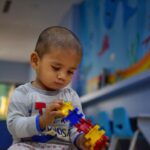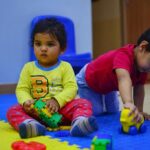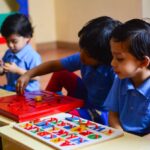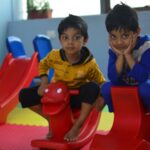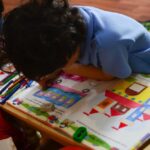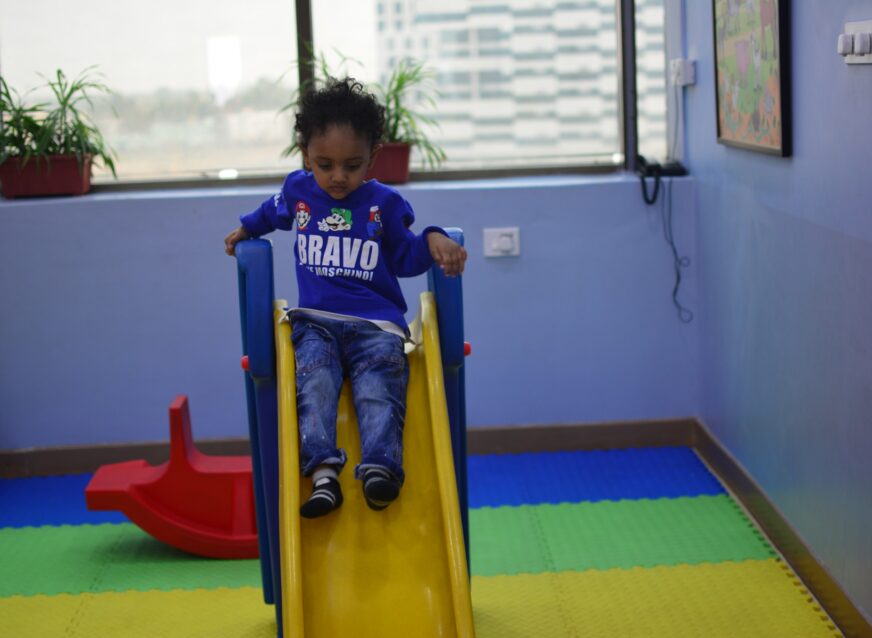
Why Early Childhood Matters More Than College
Why Early Childhood Matters More Than College
We often think of college as the most important phase of education. But what if the most critical years of learning happen long before a child ever steps into a university? Science, psychology, and the Montessori method all point to a profound truth: the first six years of life are the foundation of everything that follows.
The Brain’s Golden Window
From birth to age six, a child’s brain is in its most dynamic phase of development. During this time, neural connections form at a rate of over a million per second. These early experiences shape not just cognitive abilities, but emotional intelligence, social behavior, and even long-term health.
As Dr. Maria Montessori observed, “The greatness of the human personality begins at the hour of birth.”
She described this period as the “absorbent mind” stage—when children effortlessly internalize their environment, language, and culture. What they see, hear, and feel doesn’t just pass through them—it becomes part of who they are.
More Than Just Learning—It’s Identity Formation
By the age of six, a child has already developed:
- A sense of self-worth and identity
- Emotional patterns and coping mechanisms
- Attitudes toward learning, relationships, and authority
These traits form the bedrock of personality. While college may refine skills, early childhood defines the lens through which we see the world. As Montessori put it, “The things he sees are not just remembered; they form part of his soul.”
Early Education vs. Higher Education
Let’s be clear: college is valuable. But it teaches what to think. Early education teaches how to think—and more importantly, how to be. It’s in these early years that children learn:
- Empathy and cooperation
- Curiosity and creativity
- Confidence and resilience
College builds careers. Early childhood builds character.
According to the Harvard Center on the Developing Child, “The basic architecture of the brain is constructed through an ongoing process that begins before birth and continues into adulthood, but in the early years it happens at a much faster pace.”
The Science Is Clear
Modern research echoes what Montessori knew a century ago:
- 90% of brain development occurs before age six
- Early stress or neglect can have lifelong consequences on mental and physical health
- Positive early experiences lead to better academic performance, emotional regulation, and social skills
UNICEF calls early childhood development “the most powerful equalizer,” and economists like James Heckman have shown that investments in early education yield the highest returns—more than any other stage of schooling.
What We Must Do
If we want to raise emotionally intelligent, socially responsible, and capable adults, we must:
- Invest in quality early education that emphasizes exploration, autonomy, and respect
- Support parents and caregivers with time, tools, and training
- Ensure access to nutrition, healthcare, and safe environments for all children
Montessori believed education should begin at birth: “This is education, understood as a help to life; an education from birth, which feeds a peaceful revolution.”
The Basics That Matter
By age six, children should have:
- A strong sense of self and belonging
- Basic literacy and numeracy foundations
- Emotional awareness and empathy
- A love for learning and confidence in their abilities
These are not just academic goals—they are human goals. As Montessori beautifully said, “The child is both a hope and a promise for mankind.”
Final Thought
The first six years are not a warm-up act—they are the main stage. Every moment, every interaction, every resource we invest in a child under six is a step toward a better society. Let’s stop thinking of early childhood as preparation for school, and start seeing it as preparation for life.






